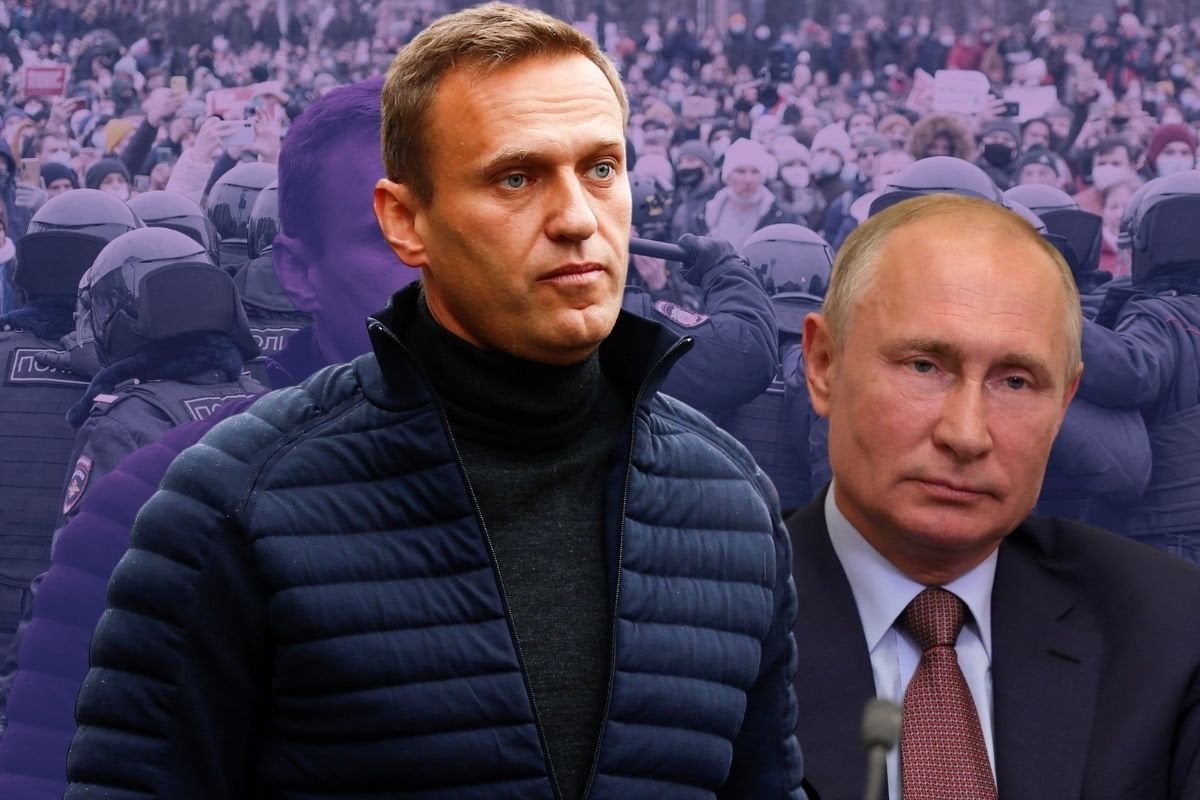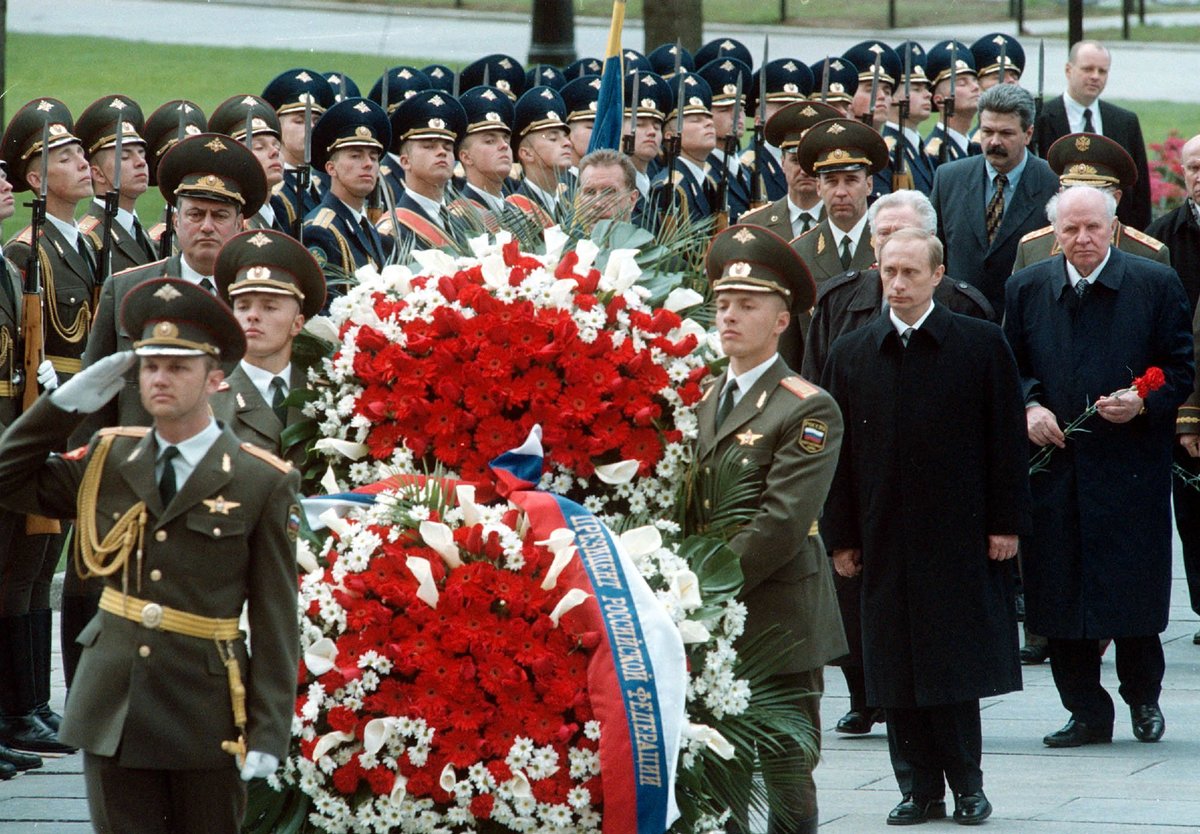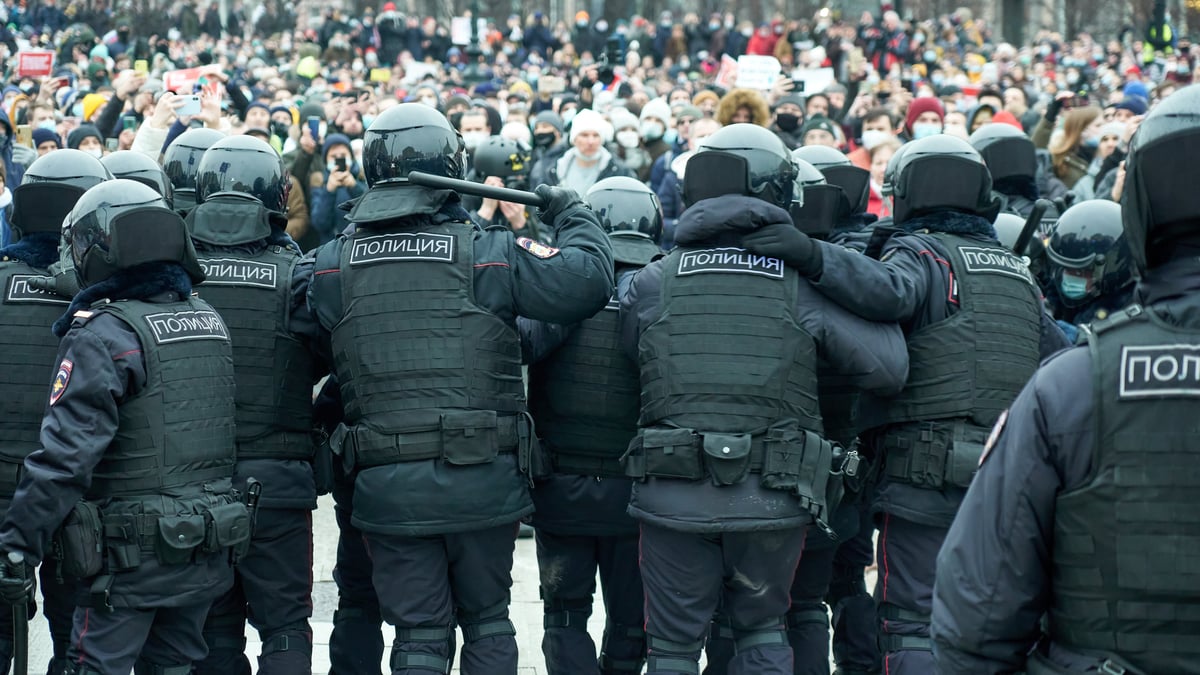
Right now in Russia protests on a history making scale are taking place across the country.
Tens of thousands of protesters have gathered, with a regime of intimidation and coercion no longer enough to bully Russian citizens into line.
The growing frustration with the Vladimir Putin regime has come to a head after the alleged attempted assassination of the country's opposition leader.
What happens next has the potential to change not just Russia, but the world.
First, let's start with some background.
Russia under Putin.
Vladimir Putin has been president of Russia for 20 years now.
Putin's tenure as president is not supposed to extend beyond 2024, but in 2020 he announced sweeping changes to the Russian constitution that were widely seen as an attempt to extend his power for as long as he wants.
Many experts believe he faked his 2018 re-election by disqualifying his legitimate opposition and hand-picking his rivals.
 Russian President Vladimir Putin walks with soldiers during his inauguration ceremony May 7, 2000 in the Kremlin in Moscow. Image: Laski Diffusion/Newsmakers/Getty.
Russian President Vladimir Putin walks with soldiers during his inauguration ceremony May 7, 2000 in the Kremlin in Moscow. Image: Laski Diffusion/Newsmakers/Getty.Putin has created a regime in which opponents are murdered, political prisoners are sent to Siberia for decades, minority rights are suppressed, and support is given to some of the world's worst bloodshed like the regime of Syrian president Bashar al-Assad.


Top Comments